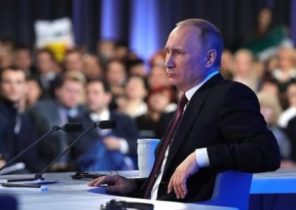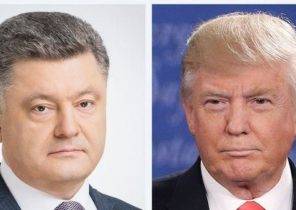
NEW YORK — Elected Donald trump President of the United States is not simply a result of the growing populist reactions against globalization. Perhaps it heralds the end of “the American peace” (Pax Americana) — the international order of free exchange and collective security, which the US and its allies built after world war II.
Thanks to the global order led by the US, have been possible 70 years of prosperity. This procedure relies on market-based modes of trade liberalization, increased capital mobility, the implementation of necessary measures of social protection. And he secured American security guarantees in Europe, the middle East and Asia with the help of NATO and other alliances.
However, trump is likely to pursue populist, anti-globalization, protectionist policies that will discourage foreign trade and restrict the movement of labor and capital. He also questioned the current us security assurances, stating that forced American allies to pay more for their own defense. If trump is serious about its slogan “America First,” then his administration would deploy the us geopolitical strategy in the direction of isolationism and unilateral decisions, defending only national interests of the Fatherland.
In the 1920s and 1930s, US has already carried out similar policies that have helped to sow the seeds of world war II. This policy started with the introduction of fees Smoot-Hawley, which have affected thousands of imported goods and sparked retaliatory trade and currency wars, increasing the severity of the great depression. Moreover, the American isolationism, based on the false confidence that the United States protected by two oceans, allowed Nazi Germany and Imperial Japan to unleash a war of aggression and endanger the whole world. After the attack on pearl Harbor in December 1941 the United States was finally forced to stick his head out of the sand.
Today the US turn to isolationism and defending only American national interests may eventually lead to a global conflict. Not even counting the prospects of us withdrawal from Europe, the European Union and the Eurozone already seems to be falling apart, especially after the June vote, British Brakcet and the December failure of the Italian constitutional referendum. Moreover, in 2017, anti-European, left and right, populist parties may come to power in France and Italy, and maybe in other European countries.
Without active U.S. involvement in European Affairs aggressive revanchist Russia will come to the fore. Russia has challenged the US and the EU in Ukraine, Syria, the Baltic States and the Balkans. It can use the prospect of the collapse of the EU, to strengthen its influence in the former Soviet block countries and supporting Pro-Russian movements in European countries. If Europe will gradually lose its American security umbrella, then nobody will win more than the President of Russia Vladimir Putin.
Offers trump threatened by the deterioration of the situation in the middle East. He said he will make America energy independent, which implies a rejection of American interests in the region and the increasing reliance on own production of environmentally harmful fossil fuels. He also refuses his claims that Islam itself, not just radical Islam militants, is dangerous. This opinion, shared also assigned to Ladder the national security Advisor to General Michael Flynn, plays into the hands of the propaganda of Islamic militants on the clash of civilizations.
Meanwhile, the approach of “First America” chosen by trump, may exacerbate the already long ongoing Sunni-Shia proxy wars between Saudi Arabia and Iran. If the United States refuses to guarantee the security of its Sunni allies, then all regional powers, including Iran, Saudi Arabia, Turkey and Egypt, decide that they can only defend themselves with nuclear weapons, the consequence can be even more deadly conflict.
In Asia, economic and military primacy of the United States has provided a decade of stability; however, a rising China now challenges the status quo. Strategic “pivot” of U.S. President Barack Obama to Asia was based mainly on the project of TRANS-Pacific partnership of 12 countries (TPP), but trump has promised to repeal it his first day as President. Meanwhile, China is rapidly strengthening its economic ties in Asia, the Pacific and Latin America with the help of the program “One belt, one road”, the Asian infrastructure investment Bank, New development Bank (formerly the BRICS Bank), and private projects of regional free trade areas, by competing with TTP.
If the United States abandon its Asian allies, such as Philippines, South Korea, Taiwan, then these countries will have no choice but to bow down before China. Other U.S. allies such as Japan and India, will have to deal with militarization and to speak out against China. As a result, the American pullout from the region could eventually lead to the beginning of the military conflict.
As in the 1930s, when protectionist, isolationist measures, the US has become a drag on global economic growth and trade, opening the way for a fast-growing, revisionist powers to the outbreak of world war II, today the same political signals, could open the way for new powers to challenge the international order headed by the USA and destroy it. Isolationist administration trump can see the wide oceans on the West and East, and think that power with growing ambitions (Russia, China, Iran) don’t pose for their homeland, a direct threat.
But the fact is that the United States remain the global economic and financial power in a world that is deeply interconnected. Without control and checks, these countries will eventually begin to threaten key American interests in the sphere of economy and security both within the country and abroad, especially if they will be able to build up its nuclear and cyber capabilities. The lesson of history is clear: protectionism, isolationism and a policy of “America First” are a recipe for economic and military disaster.







